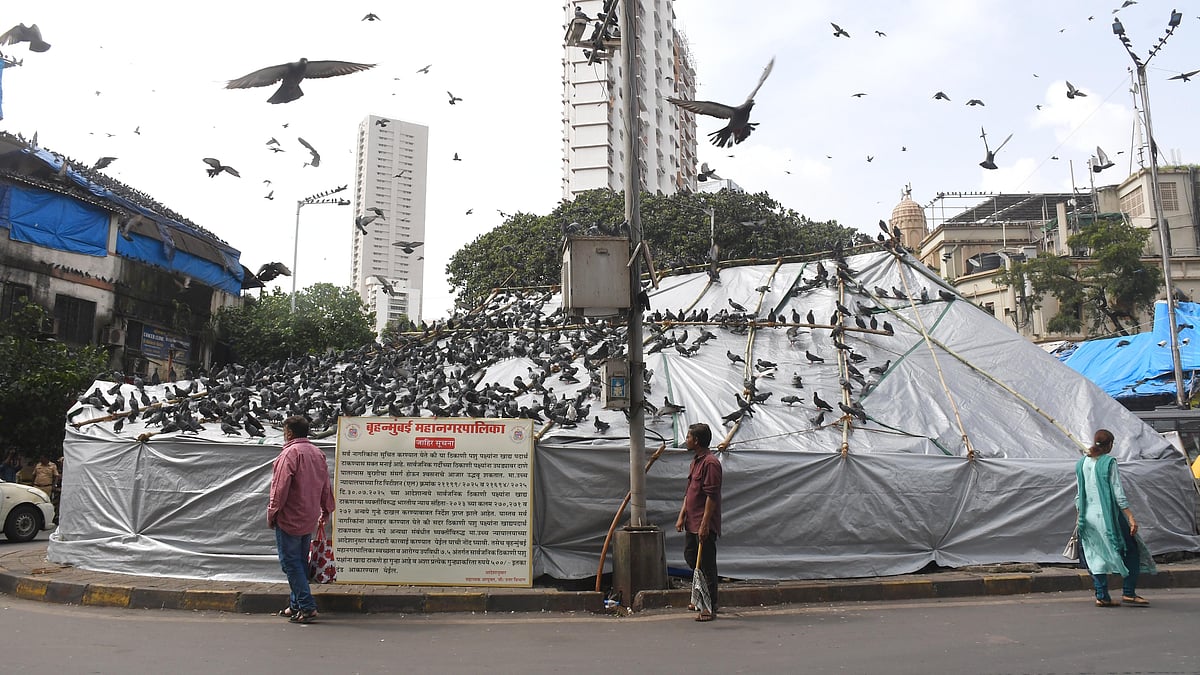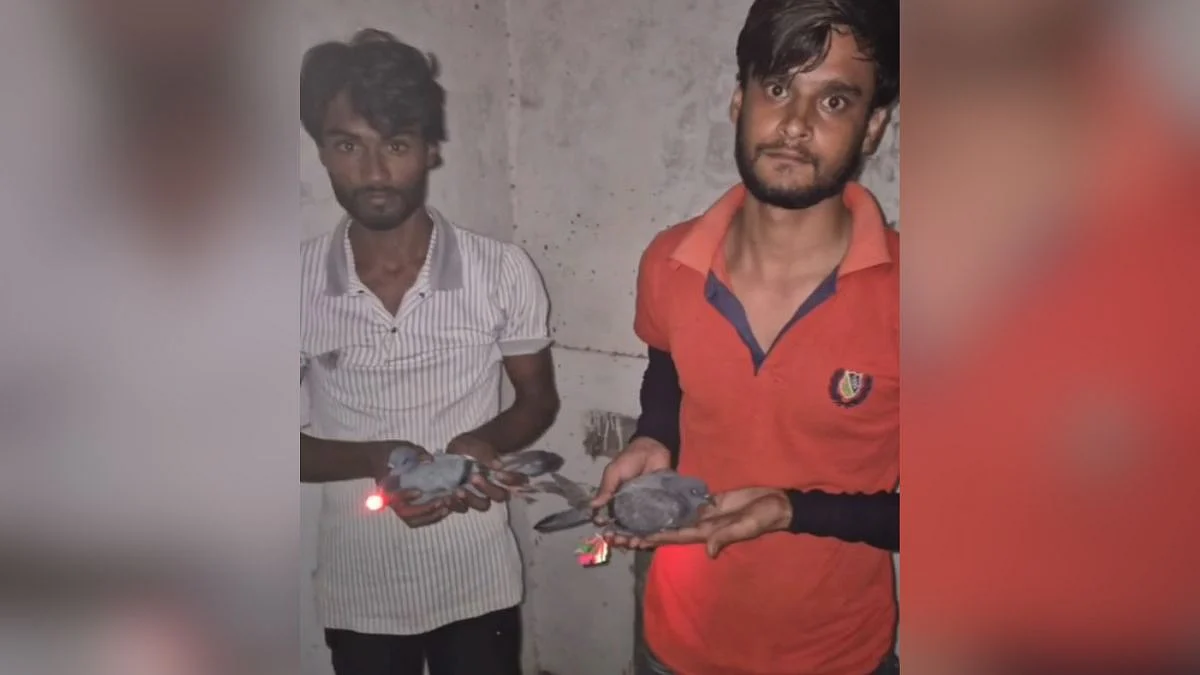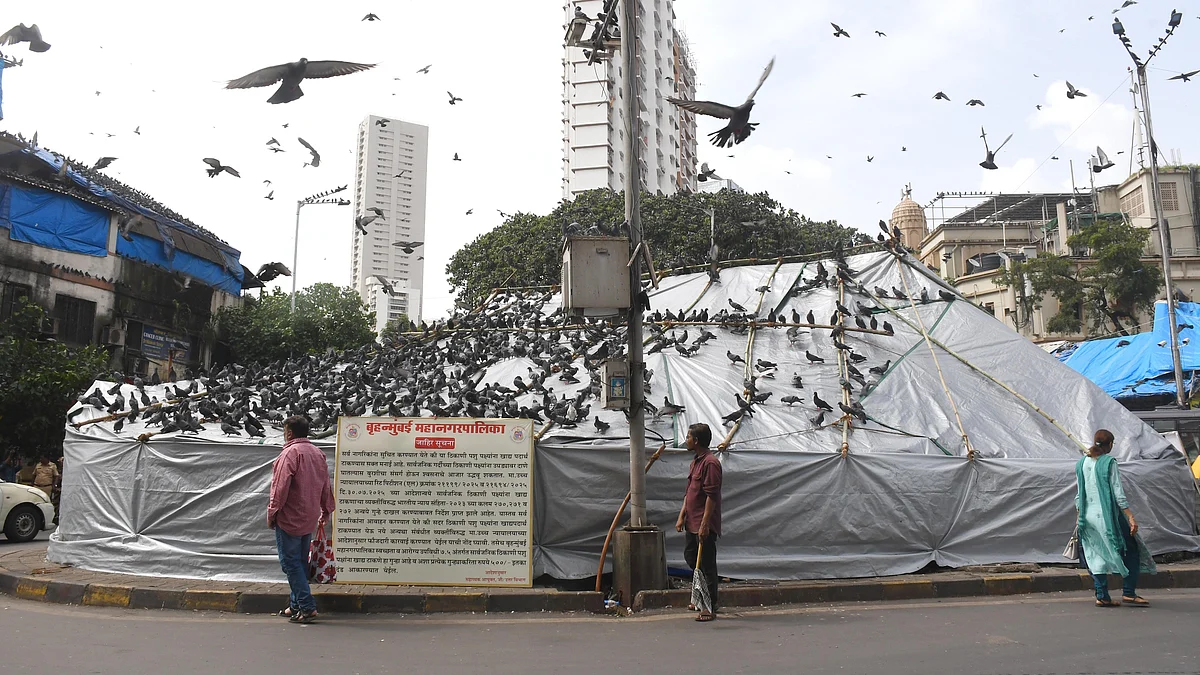It might come across as an absurdity that Mumbai’s citizens, at least a section of them, have been engaged in battles with the state government and the Brihanmumbai Municipal Corporation (BMC) over a relatively minor issue: the feeding of pigeons at public squares. However, given the developments of the past few weeks and the religious-political colour given to it, the issue threatens to spiral out of control, turning it into a law-and-order problem. Over the past few weeks, this has turned out to be both a battle of wits between citizen-feeders and the authorities as well as a legal battle in the Bombay High Court between them. The matter took a serious turn a day back when the Mumbai Police registered the city's first criminal case for feeding pigeons in a public space, an act now deemed a punishable offence under the Bharatiya Nyaya Sanhita (BNS).
This, coupled with the street demonstrations by a small group of feeders at the iconic Kabutarkhana in Dadar over the weekend, points to a rather argumentative time ahead rather than a peaceful resolution. It all came to a head in early July when the state government directed the BMC to immediately shut down pigeon feeding grounds and act against illegal feeding. The matter was taken to the HC by feeders and animal rights activists. The HC said that the issue was paramount to public health and, in an order on July 30, directed the civic body to file FIRs against illegal feeding. Pigeons are known to be carriers of airborne diseases, and their droppings can harm human health, but certain communities, especially Jains and Gujaratis, consider it “mercy feeding” and an act of religious service.
Cleanliness and sanitation bylaws, framed nearly a decade ago, authorise the BMC to levy a fine of Rs 500 on any person found feeding animals or birds in non-designated areas. But this, according to activists, is post-facto, given that pigeon feeding squares, called Kabutarkhanas, have existed in Bombay/Mumbai for nearly a century and the city has about 50 of them. In fact, the Dadar Kabutarkhana is a charitable trust and a landmark too. The impact of clustered pigeons—most feeding areas have a bustling crowd of pigeons whose droppings and feathers have harmful pathogens and may lead to severe respiratory diseases—has been disregarded by feeders and animal rights activists. In suggesting that the ailments could be due to general pollution, because no study in Mumbai links pigeons to respiratory ailments, they seem to be sensitive to the birds but shockingly insensitive to fellow humans. To hold on to an age-old ritual that, practiced in the Bombay of yore with ample space, threatens the health and safety of many is hardly collegial.







